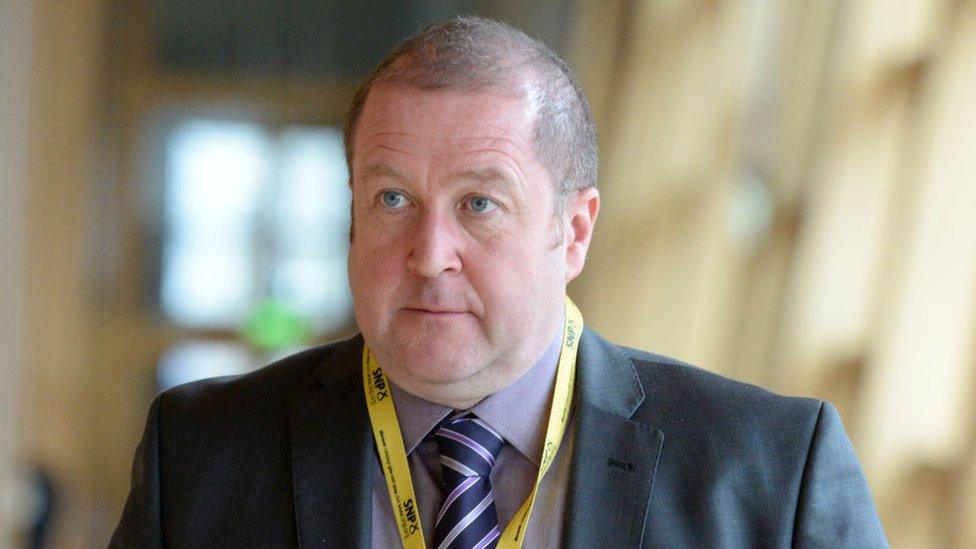Ministers propose new education super agency for Scotland
- Published
- comments

The Scottish government has not yet released its apprenticeship budget
Radical reform is being proposed to the way £3bn is spent each year on Scotland's universities, colleges, skills and apprenticeships.
The changes could potentially affect more than half a million learners and researchers, including the loans and grants the students receive.
In the 2021 election, the SNP said these would be extended to part-time learners.
Ministers now want the awards system to extend to apprentice funding.
It would mean at least three large government agencies being replaced.
Graeme Dey, the Holyrood minister responsible for post-school education, has outlined a plan for one agency, with a budget of more £3bn.
It would replace the Scottish Funding Council, which allocates resources to higher and further education, along with the Student Awards Agency Scotland.
The new body would probably see the end, at least in its current form, of Skills Development Scotland (SDS).
A recent review raised criticism of the Scottish government agency for inflexibility and its co-operation with other agencies.
It is clear that the Scottish government wants to remove SDS's role in skills planning, including around 25,000 apprenticeships each year. That would be done by central government.
Mr Dey's plan is for the careers advice service, currently run by the skills agency, to be embedded in local communities, schools, colleges and workplaces. That could also lead to removal of a major function of SDS.
In setting out "purpose and principles" of the reform, the minister said people should see improved quality and consistency of careers advice at all stages of life, with a focus on transitions between different types of learning, making it easier for people to understand and navigate the system.

The reforms are intended to help employers boost training for their workers. And universities and colleges are being expected to work more closely together.
The Scottish government said: "It means being responsible for collaboration across the entirety of the system to get things right for learners.
"This means improvement and simplification of application and admissions processes, maintaining high quality learning, working hard to accommodate and support learning needs, working more in collaboration than competition for the same students, and developing new and more integrated models of delivery."
While universities retain their autonomy and will continue to award degrees independently of government, the reforms could open the door to mergers of institutions, and to closer working between universities and feeder courses from colleges.
Mr Dey's plan is contained in a response to a review of the way in which skills and training are delivered, which found the system is "not fit for the future".
Its author, James Withers, urged that reform should be carried out by people who are not currently in charge of these agencies, and said the system should be re-focussed on the needs of learners.
For now, the minister says he will "investigate the options" of such a single, over-arching body for post-school education and training.

Graeme Dey was appointed minister for further and higher education in March
In addition, reform of the qualifications system is continuing, with a long-running project to replace the Scottish Qualifications Agency. The new exams body is intended to issue post-school qualifications other than degrees.
Mr Dey said: "Over half a million people are participating in our education, research and skills system every year, underpinned by over £3bn of investment. We need to ensure it is fit for the future and that's why we are embarking on a widespread programme of reform across the sector.
"Globalisation, technological advances, the impact of the pandemic and demographic changes all point toward the need for change, as well as the shifting expectations of students and of employers.
"A key part of this is ensuring all elements of the lifelong education and skills sector work together as one single system."
Shona Struthers, chief executive of Colleges Scotland, representing the further education sector, said the current system is not sustainable and some of the measures announced by the minister could help to bring the stability the sector needs.
She added: "Colleges are swiftly adapting under pressure to new ways of working, finding efficiencies and are trying to find new markets, but the core purpose of a college is to provide world-class education and training, which is extremely challenging without sustainable funding."